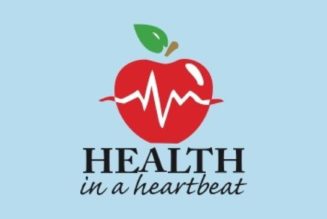
February is American Heart Month, a time when all people can focus on their cardiovascular health. This is a great time for everyone to think about heart healthy living. No matter where you’re from or where you are, you can take steps toward heart health. Cardiovascular disease is the leading cause of death in the United States, and it isn’t exclusive to older adults. Data show that cardiovascular disease and cardiovascular disease mortality are increasing among younger populations. Regardless of age, you should be aware of the major risk factors for developing heart disease, which include high cholesterol, hypertension, diabetes, smoking and family history.
If you have a family history of premature cardiovascular disease, you should be looking into whether or not you have one of the other four major risk factors. Make sure you know your cholesterol level, regularly check your blood pressure, and know the normal range is systolic less than 120 and diastolic less than 80. It is also important to know whether or not you have elevated average blood sugars on a regular basis, which can be a sign of insulin resistance, or early diabetes. Most importantly, don’t smoke!
Don’t wait for heart disease to happen to you, you need to get out ahead of heart disease. Take charge when you’re feeling well and make sure that you know if you have any of the risk factors for heart disease. Identifying those risk factors and treating them early can prevent the development of any future heart disease. A healthy lifestyle can help keep your blood pressure, cholesterol, and blood sugar levels normal while also lowering your risk for heart disease and heart attack. Knowing your risk factors can help you and your health care team decide on the best treatment plan for you. The most important take home message to understand is that the vast majority of cardiovascular disease is preventable, and that depends upon you being proactive and asking your primary care provider to screen for these modifiable risk factors which, if identified and treated early, will greatly reduce your risk of developing cardiovascular disease.
Eating healthy is important for good cardiac health! Choose healthy meals and snacks to help prevent heart disease and its complications. Be sure to eat plenty of fresh fruits and vegetables and fewer processed foods. It is also important to maintain a healthy weight. People with tendencies to be overweight have a higher risk for heart disease. Carrying extra weight can put extra stress on the heart and blood vessels. Physical activity can help you maintain a healthy weight and lower your blood pressure, blood cholesterol, and blood sugar levels. For adults, the Surgeon General recommends 2 hours and 30 minutes of moderate-intensity exercise; for example, brisk walking or bicycling, every week is a good starting activity. Children and adolescents should get a minimum of one hour of physical activity every day.
ADVERTISEMENT
Don’t smoke; cigarette smoking greatly increases your risk for heart disease. If you don’t smoke, don’t start. If you do smoke, quitting will lower your risk for heart disease. Visit with your doctor for suggestions on ways to help you quit. Enlisting the help of a friend or colleague as a support system is beneficial in changing a behavior.
Managing existing conditions is essential to healthy living. It’s never too late to start to live a healthier life. Work with your health care team to make lifestyle changes to help manage identifiable health conditions. Many conditions can be prevented or managed by eating better, getting active, losing weight and quitting tobacco. Make sure that you take the medications prescribed by your health care team to manage any identified risk factors.
Don’t be afraid to ask questions. Health care professionals are there to help you. Speak freely about challenges that you see as barriers in trying to make healthy changes to your lifestyle. Stress, sleep, mental health, family situations, tobacco use, food access, social support and other issues can all affect your health. Through years of incredibly meticulous research, cardiovascular experts have identified those risk factors for cardiovascular disease which, if identified early and treated, can significantly lower your risk of developing cardiovascular disease. So, now it’s your job to take advantage of that knowledge and do something about it!
And most importantly, be positive! Live well today for a healthier tomorrow. Healthy living is the best way to avoid and prevent heart disease. Being active and fit, eating healthy, avoiding tobacco, and managing existing conditions. Be in charge — create healthy sustainable life habits starting today! The cardiovascular team at Essentia Health St. Joseph’s Medical Center is here for you and your loved ones every step of the way through your heart health journey. We are called to make a healthy difference in people’s lives.
Amber Pikula, a registered nurse with a bachelor’s degree in nursing, is a cardiovascular manager with Essentia Health.









